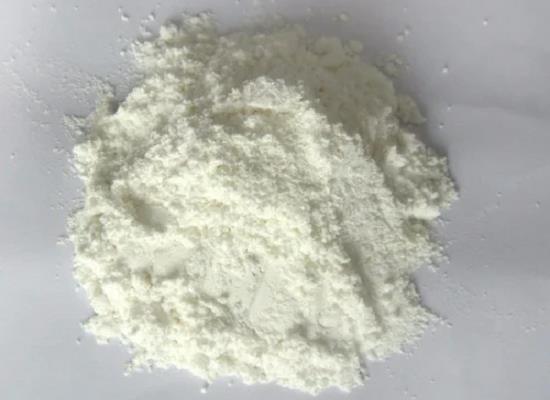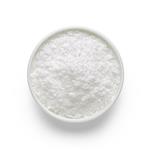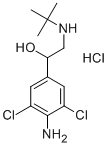Clenbuterol hydrochloride: Physiological Effects, Side Effects and Dosage
Mar 7,2024
General Description
Clenbuterol hydrochloride, a β2 adrenergic receptor agonist, promotes fat breakdown and inhibits fat synthesis through thermogenesis and increased metabolism. Clenbuterol hydrochloride may enhance protein synthesis in animals but its muscle growth effects in humans are debated. However, Clenbuterol hydrochloride can lead to adverse effects such as tachycardia, hypertension, nervous system stimulation, and gastrointestinal discomfort. Dosage should start low and increase gradually, with men typically starting at 40mcg/day and women at 20mcg/day. Exceeding safe maximum dosages (140mcg/day for men, 100mcg/day for women) can cause serious cardiac issues. Consultation with a healthcare professional is crucial for determining appropriate dosage of Clenbuterol hydrochloride and minimizing risks.

Figure 1. Clenbuterol hydrochloride
Physiological effects
Clenbuterol hydrochloride, a β2 adrenergic receptor agonist, exerts its physiological effects through several mechanisms. Firstly, it stimulates the breakdown of fat by acting on the β2 adrenergic receptors in the body, leading to thermogenesis and increased fat metabolism. Simultaneously, it inhibits insulin secretion and suppresses fat synthesis, contributing to its fat-reducing properties. In addition to its fat-burning effects, Clenbuterol has been shown to enhance protein synthesis and promote lean muscle growth in animal experiments and livestock production. It achieves this by increasing nitrogen retention and stimulating the release of IGF-I (insulin-like growth factor-I), thereby elevating the rate of protein metabolism. However, while these effects are prominent in animals, the ability of Clenbuterol to promote muscle growth in humans remains highly controversial and has not been conclusively demonstrated. In summary, Clenbuterol hydrochloride exerts its physiological effects through promoting fat breakdown, suppressing fat synthesis, and potentially enhancing protein synthesis, although its efficacy in promoting muscle growth in humans is still subject to significant debate. 1
Side effects
Clenbuterol hydrochloride, while having potential benefits, also poses several significant side effects. One of the most commonly reported adverse effects is tachycardia, or an abnormally rapid heart rate, which can lead to palpitations and even arrhythmias in some cases. Additionally, Clenbuterol may cause hypertension, or high blood pressure, which can increase the risk of cardiovascular complications. Other cardiovascular effects include vasodilation and increased cardiac output. Furthermore, users of Clenbuterol may experience nervous system stimulation, leading to symptoms such as anxiety, insomnia, and tremors. The drug can also induce headaches, muscle cramps, and excessive sweating. In some cases, users have reported experiencing nausea, vomiting, and dry mouth as well. It should be noted that long-term use or high doses of Clenbuterol may result in more severe and potentially life-threatening effects, including cardiac hypertrophy and possible cardiac necrosis. In summary, Clenbuterol hydrochloride can lead to a range of adverse effects, particularly on the cardiovascular and nervous systems, and caution should be exercised when considering its use. 2
Dosage
Clenbuterol hydrochloride dosage varies depending on individual response and the specific purpose of use, such as fat loss. Typically, the dosage should increase over time as the body adapts to the medication's effects. For men, a standard starting Clenbuterol hydrochloride dosage is 40mcg per day, while women usually begin with 20mcg per day. These initial levels are relatively low, and exceeding them is generally unnecessary. It is important to adhere to the maximum safe Clenbuterol hydrochloride dosage to ensure safety. For most men, this is around 140mcg per day, while women should generally not exceed 100mcg per day. Going beyond these limits can pose serious risks, including cardiac hypertrophy and significant stress on the heart. Incremental increases in dosage are necessary as the body adapts to the medication. The method of incremental increase may depend on the specific Clenbuterol cycle being followed, such as the 2-week on/2-week off method or steady incremental use. When discontinuing Clenbuterol hydrochloride use, it is not necessary to taper the dosage down gradually. Instead, simply returning to the original starting dosage, such as 40mcg per day for 7-14 days, before discontinuing use altogether will suffice. It is important to note that individual responses to Clenbuterol hydrochloride may vary, and consulting a healthcare professional is essential to determine the most suitable and safe dosage for each individual. 3
Reference
1. Kristin H. Clenbuterol: Uses, Side Effects, Risks. Very well health. 2022.
2. Kumari S, Pal B, Sahu SK, Prabhakar PK, Tewari D. Adverse events of clenbuterol among athletes: a systematic review of case reports and case series. Int J Legal Med. 2023;137(4):1023-1037.
3. Clenbuterol Dosage. Steroid Profiles. Steroid.com.
- Related articles
- Related Qustion
- Application of Clenbuterol hydrochloride Nov 15, 2022
Clenbuterol hydrochloride, the appearance of white crystalline powder, drug names such as dichlorolamine, sulventamine, claributerol, etc.
Supplementation with pyridoxal 5'-phosphate monohydrate can synthesize neurotransmitters such as dopamine and serotonin, maintaining a healthy nervous system.....
Nov 4,2025Biochemical EngineeringHydrogenated castor oil is a hard, wax-like substance extracted from castor oil beans, it is an important and popular ingredient for cosmetics makers.....
Jan 7,2025Biochemical EngineeringClenbuterol hydrochloride
21898-19-1You may like
Clenbuterol hydrochloride manufacturers
- clenbuterol antibody hydrochlorid
-

- $10.00 / 1bag
- 2025-06-10
- CAS:21898-19-1
- Min. Order: 1bag
- Purity: 99%
- Supply Ability: 200kg
- Clenbuterol hcl
-

- $0.00 / 2kg
- 2024-12-17
- CAS:21898-19-1
- Min. Order: 1kg
- Purity: 99%
- Supply Ability: 1000
- Clenbuterol hydrochloride
-

- $40.00 / 1kg
- 2024-01-08
- CAS:21898-19-1
- Min. Order: 1kg
- Purity: 99.50%
- Supply Ability: 20tons






